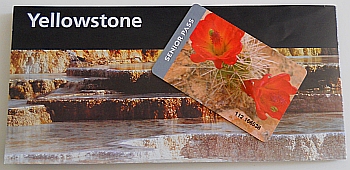The golden years are a good time for people to travel. Families are grown, so seniors don’t have to plan their vacations around school holidays. Retired from the nine-to-five work grind, seniors don’t have to limit their vacations to just two weeks a year. They can go whenever they want for as long as they want.
One of the best parts about traveling at this age is the number of discounts available for senior citizens: hotels, restaurants, admission fees, cruises… The trick, however, comes in finding them, especially if you’re traveling in foreign countries.
U.S. Discounts
AARP is the largest organization for senior citizens in the United States. It has a travel benefits package that offers discounts on accommodations, car rentals and cruises. You must be at least 50 years old and a member of the organization to receive these benefits. Two or three nights in a hotel can pay for a year’s membership in AARP. Do be aware that sometimes you can get the same – or larger – discounts through an auto club membership or by dealing directly with the business itself.

The federal government offers a real money-saver for seniors with its Federal Recreational Lands Pass. The cost is just $10 for a lifetime pass and covers admissions for up to six people in a single vehicle, as well as 50 percent discounts on camping. Considering admission to one national park can cost $25 or more, the pass pays for itself on the first use. The pass is available at more than 2,000 federal recreation sites, such as national parks and monuments, or it can be ordered by mail for an additional fee. The pass is only sold to U.S. citizens and permanent residents.
European Discounts
Determining senior-citizen discounts when you’re traveling abroad can be a little trickier. When you’re traveling in Great Britain, if the list of admission charges doesn’t say “senior citizens,” look for “concessions.” That’s used to designate reduced fees for seniors and students. Be aware that in Britain many attractions list an “optional” fee of a pound or two, which amounts to a donation to that facility. You will be charged this fee if you don’t opt out of it; pay attention to the fee signs as ticket sellers may not mention it. Once you pay the fee, it’s too late for a refund.
Senior discounts are common in Europe, but sometimes they are limited to residents of that country or another European Union country. Discounts can be hit or miss, depending on the city. For example, in Madrid, the Royal Palace gives senior discounts only to EU residents, while the Prado extends the discount to all nationalities.
Sometimes it costs money to save money. Most rail and coach systems offer discounts that are good for a year to people who buy their senior travel card. Travelers who can plan weeks or even a couple of months ahead may be able to get bigger discounts with advance purchase tickets, which can be ordered from home over the Internet.
Show That Passport
OK. You’re in a country where you don’t speak or read the language. How do you find out about discounts?
One way is to just show your passport ID page, pointing to your birth date, to the ticket-seller. In some countries, such as China, it can on occasion get you into the attractions free. Travelers to the Middle Kingdom should know that while Chinese discounts are available to seniors from all countries, the half-price ticket won’t get them into everything at one place. China charges separate fees for facilities inside an attraction, such as the Panda Houses at the Beijing Zoo or Longevity Hill at the Summer Palace. If you want to see these, you’re better off buying the full-meal-deal ticket at the entrance; it’s cheaper than the basic admission fee plus separate facility admission fees once inside.
Ask! Ask! Ask!
That’s the most important thing that senior travelers can do to save money. You may be surprised where discounts turn up. Some attractions don’t advertise admission fees for seniors, but if you ask, you may get one. This is especially true in Thailand, where you may be able to get discounts at restaurants, hotels and attractions just by asking.
Other countries, such as Australia,s have discount cards for their own citizens, while in New Zealand, visitors can buy the discount cards, too. Be sure to check out what the card covers before joining; however, since in some countries they are good for discounts on utilities and rent rather than on travel.

The Biggest Discounts
Free is the biggest and best discount you can find. Most museums around the world have days when admission is free, not only for senior citizens, but for everyone. For example, the Louvre in Paris doesn’t offer senior discounts, but it doesn’t charge admission on the first Sunday of the month and on July 14, Bastille Day. Another famous Paris attraction, Versailles Palace, is free on the first Sunday from November to March.
The Internet makes it easy to find free admission days by searching a museum’s website. Major museums have websites in English as well as the native language, making it easier for you. Do note that flexibility on travel plans is important if you’re going to build a vacation around free admissions.
Some museums also offer free admission to disabled people and their companion. You’ll need to show proof of disability, such as your handicapped parking placard.
Discounts are out there for senior travelers. Just remember to ask if you don’t see any signs or show your passport. Use your savings to travel longer or have a gourmet dining experience in a top restaurant.


